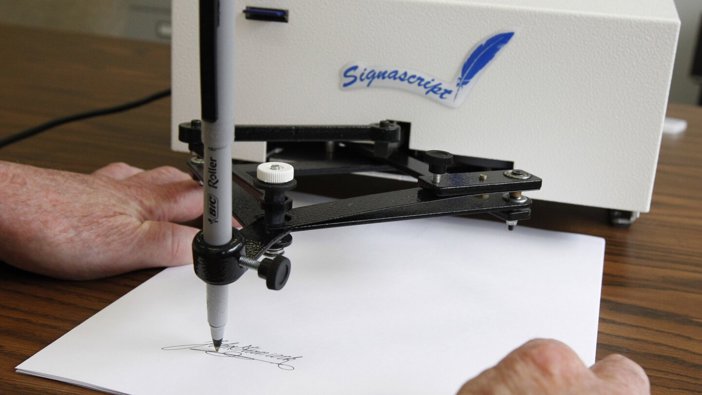
House GOP Moves to Ban Autopen Use for Key Documents
Republican lawmakers propose legislation to prohibit presidents from using autopen devices to sign key legal documents.
Republican Lawmakers Target Presidential Autopen Signatures
In a move aimed at strengthening executive accountability, Rep. Addison McDowell, R-N.C., has introduced a bill that would prohibit the use of autopen devices by U.S. presidents when signing engrossed bills, executive orders, pardons, or commutations. The legislation, formally titled the “Ban on Inkless Directives and Executive Notarizations Act of 2025” (BIDEN Act), asserts that only the sitting president may lawfully affix a signature to these critical items.
The proposed bill would amend current law to state: “Notwithstanding this section or any other provision of law, no person other than the President may lawfully sign an engrossed bill, Executive Order, or pardon or commutation, nor may automatic signing device, including an autopen, be used for such purpose.” The bill further declares that any item signed in violation of this rule—regardless of whether it was signed before the law takes effect—would have no legal force or effect.
Ensuring Presidential Oversight
Rep. McDowell emphasized the bill’s intent in a press release, saying, “The American people elect a President to run the country, not a cabal of woke staffers. Sadly, that is exactly what the American people received under Joe Biden.” He argued that the use of autopen devices undermines the personal responsibility of the president and enables staff or outside influences to assume presidential authority, especially when the president’s competency is questioned.
“While Joe Biden worried more about breaking glass ceilings as commander in chief, his legacy will forever be tied to the lack of oversight he provided to the presidential autopen. The BIDEN Act will ensure that rogue bureaucrats can no longer take advantage of a mentally incompetent President to seize authority awarded to the Oval Office,” McDowell added, according to the statement.
Historically, the use of autopen for signing official documents has been rare but has occurred under multiple administrations to expedite urgent orders or legislative deadlines. The BIDEN Act would end the practice for future administrations, requiring that all critical presidential actions bear a handwritten signature from the president themselves.
Former President Joe Biden has previously pushed back against claims questioning his autonomy as president. In a statement last month, Biden said, “Let me be clear: I made the decisions during my presidency. I made the decisions about the pardons, executive orders, legislation, and proclamations. Any suggestion that I didn’t is ridiculous and false.”
The introduction of the BIDEN Act has already sparked debate in Washington over executive process and the practical implications of enforcing handwritten signatures on all high-level presidential actions. Supporters argue it would reinforce direct accountability, while critics contend it responds to exaggerated concerns about staff overreach and presidential capacity.
The measure will now move to committee for further consideration, where lawmakers will debate its merits and potential impact on executive operations. The outcome could shape future standards for presidential decision-making and the documentation of America’s most consequential legal actions.






